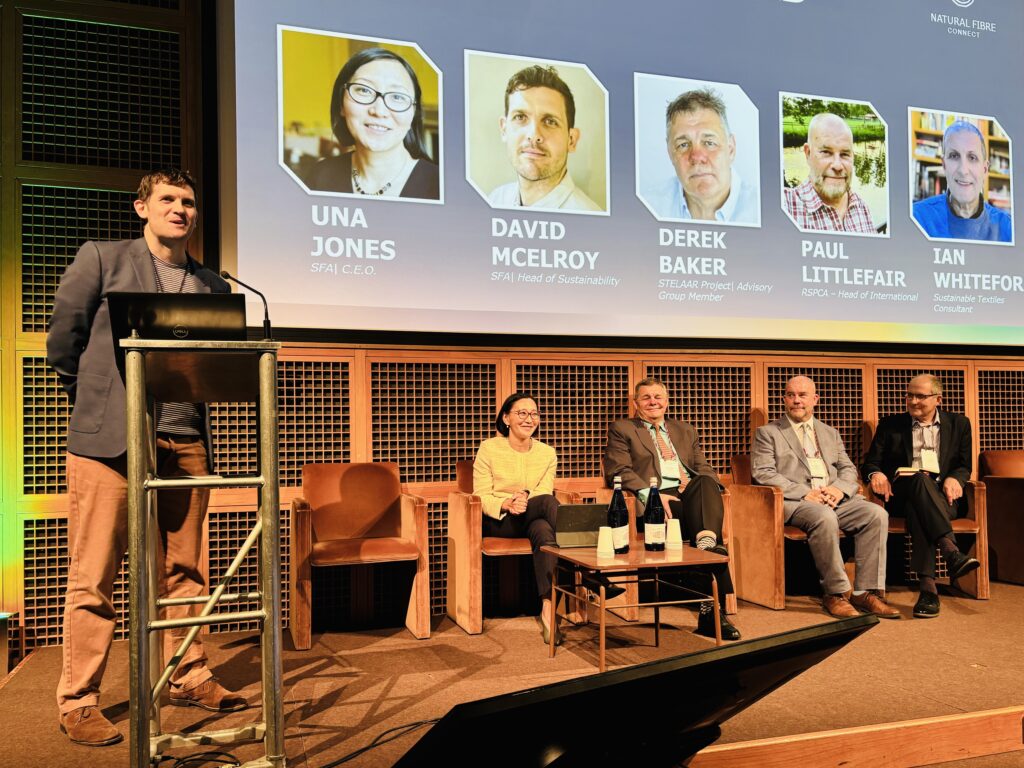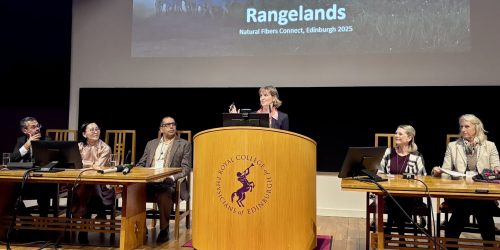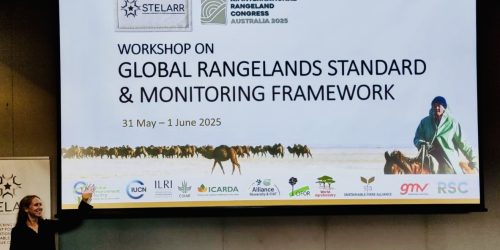This year’s Natural Fibre Connect (NFC) Conference in Biella, Italy, was more than just a gathering of industry leaders—it was a wake-up call for the future of our planet’s rangelands. The 2024 conference placed a spotlight on rangeland stewardship and the need for a global standard to protect these ecosystems.
At the heart of the discussion was a panel session, moderated by Dr David McElroy, Head of Standards at the Sustainable Fibre Alliance (SFA). The panel explored crucial topics such as desertification, overgrazing, and the role of livestock value chains in sustainable land management.
Una Jones, CEO of the SFA, kicked off the session by introducing the Rangeland Stewardship Council (RSC) and its mission to establish a Global Rangelands Standard. She emphasised the importance of collaboration in addressing the complex challenges in rangeland management, highlighting that the RSC brings together a “network-of-networks,” fostering cooperation across different regions and stakeholders. “There are many different animal health/welfare standards out there, there are different commodity standards, and we are looking to bring mutual agreements across those standards and bring better local ownership that suits that environment and works in that environment.”
Adding another layer of expertise, Derek Baker from the STELARR Project shared sobering insights on the growing degradation of rangelands. His message was clear: it’s time to take action. “We’re in a lot of trouble with our rangelands. A lot of them are degrading, and this project wants to get on the front foot to start winding that back.” With large-scale rangeland restoration as the project’s primary goal, Derek also noted the increasing interest from luxury brands in biodiversity and species restoration—but he cautioned that much more needs to be done on a broader scale.
The conversation then expanded with contributions from other experts. Paul Littlefair, Head of International at the RSPCA, raised a crucial point about the importance of animal welfare in context of global rangelands. He stated, “What we do when things go wrong is really important,” emphasising that the ability to manage crises effectively is key to maintaining consumer trust, especially for those who care about ethical sourcing.
Ian Whiteford, an expert in sustainability in the textiles industry, took the discussion in another direction. He discussed the broader impact of sustainable supply chains, noting supply chain decisions affect not just jobs, but entire communities, traditions, and ecosystems.
A poignant moment of the session focused on last winter’s devastating Dzud in Mongolia. The extreme weather destroyed 7 million livestock, leaving herder communities devastated. The increasing frequency of such events illustrates that climate change is no longer a future concern; it is a current reality reshaping lives. This emphasises the urgent need for greater investment in rangelands to enhance drought management and resilience, underscoring the importance of proactive, large-scale efforts to mitigate climate risks in these ecosystems.
The session closed with a reflection on the growing demand for transparency in the global marketplace. Consumers increasingly want to know not only the quality of their products but also the story behind them—how they’re made, where they come from, and the impact they have on the environment. While quality remains paramount, the provenance and ethical footprint of a product are fast becoming key factors in consumer decisions.
The dialogue at NFC 2024 was a powerful reminder that rangeland stewardship and sustainable supply chains are not isolated issues. They’re part of a bigger, global challenge—one that requires cooperation, innovation, and large-scale action.
Learn more about the Rangeland Stewardship Council and the STELARR Project on our Projects page.





